
Eli Oberstein
b. 13 December 1901
d. 12 June 1960
American record producer and music industry executive, whose career spanned the late 1920s - 1950s. He is best remembered as a major force behind the success of the Bluebird (3) label. He later owned a succession of small labels. He may be the most controversial producer of the first 50 years of the record industry, having earned an unsavory reputation through business conduct that was often unethical and perhaps illegal.
Oberstein started in the music industry around 1925, first as an employee of the Starr Piano Company and then as treasurer at Okeh. His mentor, Ralph Peer, then hired him to work at Victor Talking Machine Co. in 1929. Originally a salesman and accountant, Oberstein rose rapidly through the ranks at Victor. By 1931 he was supervising recording sessions and by 1932 he was assigned to manage RCA pressing for the Crown Record Company. He positioned himself within the RCA-Victor establishment to head the budget-labels, including Timely Tunes and eventually Bluebird.
Peer had taught Oberstein to personally hold artist-management contracts with performers he signed for RCA. He developed the race and country-music catalogs, and was responsible for making Bluebird a major pop label. During the 1930s, Oberstein signed Artie Shaw, Charlie Barnet, Glenn Miller and many other rising stars. Oberstein also had a devious side, and undermined associates, including his mentor Ralph Peer, in order to gain full control of Bluebird. His controlling nature was also evident when he took over conducting duties for well-known band leaders at many sessions. He created the pseudonym "Elliot Everett And His Orchestra" and sometimes substituted it for the names of the actual performers on records.
Oberstein was fired (or resigned) from RCA in February, 1939 and sought to become an independent record producer. He established the United States Record Corporation and launched the United States Record Corporation and United States Record Corporation labels in the summer of 1939, and attempted to force Bluebird artists (whose personal management contracts he held) to defect to his new labels. However, artists either bought out their contracts or contested and prevailed, and the mass defection never happened. Oberstein's new labels failed in a little over one year. During their brief existence, Oberstein was frequently at the center of controversies over finances, artist (mis)treatment and questions concerning the sources of his masters. Many of these had been dubbed from old Crown (5), Gennett Records and Paramount recordings and issued under pseudonyms on Oberstein's labels.
After the United States Record Corporation went bankrupt, Oberstein set up the Imperial Record Company and launched the Elite (3) label. By the end of 1941 he had merged with Classic Record Company, producers of the Concertone label. During 1942, he was pressing large quantities of his fledgling Elite (3) label, despite wartime shellac shortages. He claimed these were pressed on shellac salvaged from a freighter that had been torpedoed in the Atlantic. He circumvented the 1942-43 Petrillo recording ban by claiming that his recordings were made in Mexico. However, rumors circulating at the time alleged that he was holding recording sessions in New York hotel rooms using amateur talent and professional musicians willing to ignore the ban. To further his estrangement from record industry leaders, Oberstein produced risqué party records and pressed dubbed pseudonymous reissues of decade-old material to which he probably did not own rights. Consequently, he was expelled from the AFM in 1942 and not reinstated until November, 1943, when he agreed to abide by the AFM's terms.
Oberstein returned to RCA in 1945 to resume his position as director of A & R for Bluebird. His old ambition was lacking, however, and he left again in 1948 to re-launch his United States Record Corporation and United States Record Corporation labels under a new company United States Record Corporation, first based in New York and later in Meriden, Connecticut. By 1950 he had consolidated many smaller companies, including the Rondo (2) label, into a new entity, the Record Corporation Of America, which Oberstein often referred to publicly as "RCA". By the late 1950s, he had sold many of his interests to Pickwick Sales Corp. He died in 1960 at the age of 58.

She's Selling What She Used To Give Away (28 Risqué Hillbilly Songs From The ‘30s)
Various
2018
Bear Family Records
CD, Album, Comp

A Blessing To People
The Dixon Brothers*
2012
Bear Family Records
Box + 4xCD, Comp
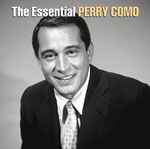
The Essential Perry Como
Perry Como
2010
RCA, Legacy
2xCD, Comp, RE

Progressions: 100 Years Of Jazz Guitar
Various
2005

The Sunny Side Of Life
Blue Sky Boys
2003
Bear Family Records
5xCD, Comp + Box

Devil In The Bayou (The Gold Star Recordings)
Harry Choates
2002
Bear Family Records
2xCD, Comp

In The Shadow Of Clinch Mountain
The Carter Family
2000
Bear Family Records
12xCD, Comp + Box

Walking The Floor Over You
Ernest Tubb
1996
Bear Family Records
8xCD, Comp
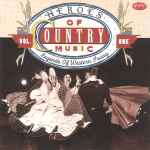
Heroes Of Country Music Vol. One (Legends Of Western Swing)
Various
1996

Nipper's Greatest Hits - The 40's Volume 2
Various
1989
RCA
CD, Comp
First Ladies Of Jazz
Mary Lou Williams, Jutta Hipp With Hans Koller, Beryl Booker Trio With Don Byas
1989
Savoy Jazz
Cass
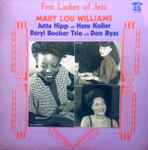
First Ladies Of Jazz
Mary Lou Williams, Jutta Hipp With Hans Koller, Beryl Booker Trio With Don Byas
1989
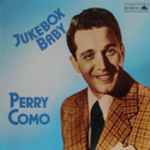
Jukebox Baby
Perry Como
1988
Bear Family Records
LP, Comp

Are You From Dixie ? Great Country Brother Teams Of The 1930's
Various
1988

Ragged But Right (Great Country String Bands Of The 1930's)
Various
1988

Brigadoon
Alan Jay Lerner, Frederick Loewe* With David Brooks (6), Marion Bell, Pamela Britton, Lee Sullivan
1988
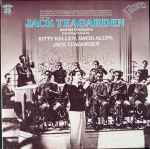
Varsity Sides
Jack Teagarden And His Orchestra
1986

The Stars Of The Grand Ole Opry-Volume 2
Various
1968
RCA Victor
LP, Comp

Stars Of The Grand Ole Opry, Volume 1
Various
1968

Stars Of The Grand Ole Opry
Various
1967

The Very Best Of Perry Como
Perry Como

The Crown King of Swing
Fletcher Henderson
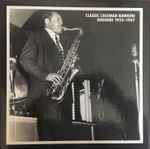
Classic Coleman Hawkins Sessions 1922-1947
Coleman Hawkins
2012
Mosaic Records (2)
8xCD, Comp + Box, Ltd, Num

Harry Smith's Complete Anthology Of American Folk Music
Harry Smith
2010
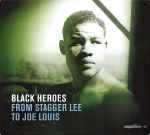
Black Heroes - From Stagger Lee To Joe Louis
Various
2007
Saga
CD, Comp, RM
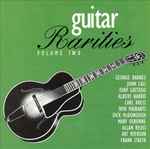
Guitar Rarities: Volume Two
Various
2002
IAJRC
CD, Comp

Just A Song Of Old Kentucky (Volume Two)
The Monroe Brothers*
2001
Rounder Select
CD, Comp

What Would You Give In Exchange For Your Soul? (Volume One)
The Monroe Brothers*
2000
Rounder Select, BMG Special Products
CD, Comp
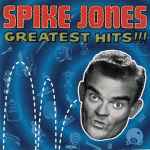
Greatest Hits!!!
Spike Jones
1999

Grinder Man Blues / Masters Of The Blues Piano
Various
1990
RCA, BMG Music
CD, Comp, Mono, RM

Hot Mallets, Vol.1
Lionel Hampton
1987

20/20
Bruce Forman
1985
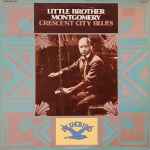
Crescent City Blues
Little Brother Montgomery
1977
Bluebird (3)
2xLP, Comp, Mono, Ind
![The Blue Sky Boys [Bill And Earl Bolick] by The Blue Sky Boys*](https://i.discogs.com/RUAS2FX-olQTQapBMEt9gHfvd-4qZ_kmNm6sFwdvarY/rs:fit/g:sm/q:40/h:150/w:150/czM6Ly9kaXNjb2dz/LWRhdGFiYXNlLWlt/YWdlcy9SLTIwMzI1/NzMtMTU4NjUyMTk2/NS01MDU3LmpwZWc.jpeg)
The Blue Sky Boys [Bill And Earl Bolick]
The Blue Sky Boys*
1976
Bluebird (3)
2xLP, Comp, Mono, Gat

The Complete Lionel Hampton 1937-1941
Lionel Hampton
1976

Down In Jungle Town / Ugga Ugga Boo Ugga Boo Boo Ugga
Spike Jones And His City Slickers
1948

California Is Wonderful (If You're A Grapefruit) / Mean To Me
Louis Prima And His Orchestra
1948

Ask Anyone Who Knows / Would You Believe Me
Swing And Sway With Sammy Kaye
1947

You Don't Learn That In School / I Believe
Louis Armstrong And His Orchestra
1947

Too Fat Polka / If I Only Had A Match
Louis Prima And His Orchestra
1947

Dingbat The Singing Cat / Happy Journey
Freddy Martin And His Orchestra
1946
RCA Victor
Shellac, 10"

Chant Of The Weed / Rumba Fantasy
Andre Kostelanetz*
1946

A Huggin' And A Chalkin' / Blue Fields
Herbie Fields And His Orchestra
1946

Mighty River / Basin Street Blues
Louis Armstrong And His Orchestra
1943
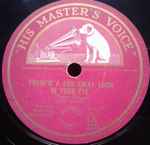
There's A Far Away Look In Your Eyes / Figaro
Dick Todd
1939
His Master's Voice
Shellac, 10"

Gems From Romberg Operettas
Victor Light Opera Company, Nathaniel Shilkret
1939

Star Dust / Keepin' Out of Mischief Now
"Fats" Waller*
1939

Hustlin' And Bustlin' For Baby / Sittin' In The Dark
Louis Armstrong And His Orchestra
1938

I’d Love To Play A Love Scene (Opposite You) / I Want A New Romance
Art Kassel And His Kassels-In-The-Air Vocal Refrain By Billy Leach
1937
Bluebird (3)
Shellac, 10", Cam

The Sheik / Yaaka Hula Hickey Dula
The Riversiders
1937
Bluebird (3)
Shellac, 10"

I Ain't Got Nobody / Basin' Street Blues
"Fats" Waller*
1937

Tea For Two / Keepin' Out Of Mischief Now
"Fats" Waller*
1937

Sweet Heartache / I've Got A New Lease On Love
"Fats" Waller And His Rhythm*
1937

Palm Serenade / Sweet Sue
Waikiki Swingsters, Ralph Kolsiana
1937

You Showed Me The Way / San Anton'
"Fats" Waller And His Rhythm*
1937

You Started Me Dreaming / Tormented
Wingy Mannone And His Orchestra*
1936
Bluebird (3)
Shellac, 10"

I Found A New Baby / Tiger Rag
KXYZ Novelty Band / The Wanderers (10)
1936
His Master's Voice
Shellac, 10"

When The Sunset Turns The Ocean's Blue To Gold / The Sweet Story Of Old
Judy Rogers (4)
1936
Regal Zonophone
Shellac, 10"

Let Me Be Your Butcher / Has My Gal Been Here?
Casey Bill*
1936
Bluebird (3)
Shellac, 10"

A Leaf From The Sea / Brown Eyes
Mainer's Mountaineers
1936
Montgomery Ward
Shellac, 10"

I Believe In Miracles / Night Wind
"Fats" Waller And His Rhythm*
1935
Victor
Shellac, 10"

Because Of Once Upon A Time / Baby Brown
"Fats" Waller And His Rhythm*
1935
Victor
Shellac, 10"

In A Little Gypsy Tea Room / In The Merry Month Of May
Jan Garber And His Orchestra
1935
Victor
Shellac, 10"

Whoopie-Ti-Yi-Yo (Git Along Little Doggies) / The Old Chisholm Trail
Walter R. Jenkins
1935
Victor
Shellac, 10"

Baby Brown / I'm A Hundred Percent For You
"Fats" Waller And His Rhythm*
1935
Victor
Shellac, 10"

Lonesome Blues / Darling Of Yesterday
Floyd Shreve & His Three Aces
1935
Bluebird (3)
Shellac, 10"

The Sweetest Girl / Rio Grande Waltz
Bill Boyd And His Cowboy Ramblers
1935
Bluebird (3)
Shellac, 10"

Olvidarte Jamás / Marimba
Lidya Mendoza*
1935
Bluebird (3)
Shellac, 10"

Dentist Blues / Root Man Blues
Walter Davis
1935
Bluebird (3)
Shellac, 10"

Your Feet's Too Big / Swinging On The Strings
The Ink Spots
1935

Whose Honey Are You?/ Rosetta
"Fats" Waller And His Rhythm*
1935

Carolina / Poppin' The Cork
Mike Doty And Orchestra
1934
Bluebird (3)
Shellac, 10"
So Nice / My Dog Loves Your Dog
Eliot Everett And Orchestra*
1934
Bluebird (3)
Shellac, 10"
Breeze (Blow My Baby Back To Me) / I Wish I Were Twins
Art Rohman And His Orchestra
1934
Bluebird (3)
Shellac, 10"
That's Love / Ol' Pappy
Sid Peltyn And Orchestra*
1934
Bluebird (3)
Shellac, 10"

Malinda's Weddin' Day / Take Me Away From The River
Fletcher Henderson And His Orchestra
1934
Bluebird (3)
Shellac, 10"

Wonder Bar / Wagon Wheels
Sam Robbins And His Hotel McAlpin Orchestra*
1934
Bluebird (3)
Shellac, 10"

Little Dutch Mill / Delta Bound
Sid Peltyn & His Orchestra
1934
Bluebird (3)
Shellac, 10"

Rolling In Love / My Hat's On The Side Of My Head
Vincent Lopez And His St. Regis Hotel Orchestra*
1934
Bluebird (3)
Shellac, 10"

Alla En El Rancho Grande / La Madre Del Cordero
Emilio Caceres Y Su Orquesta* / Orquesta Popular
1934
Victor
Shellac, 10"

Alla En El Rancho Grande / Adiós Mi Chaparrita
Emilio Cáceres And His Club Aguila Orchestra
1934

An Earful Of Music / When My Ship Comes In
Rudy Vallee And His Connecticut Yankees
1934

Daybreak Express / Dear Old Southland
Duke Ellington And His Orchestra
1934

"Revenge With Music"
Andre Kostelanetz*
1934

Smoke Gets In Your Eyes / I Was In The Mood
George Hall & His Orchestra
1934
Adorable / Hiawatha's Lullaby
Little Jack Little And His Orchestra
1933
Bluebird (3)
Shellac, 10"

Carolina Lullaby / Oh! Look At The Rain
Bob Dixon Trio
1933
Victor
Shellac, 10"

Cotillion
National Barn Dance Orchestra
1933
Bluebird (3)
Shellac, 10"

Balance Six Quadrille / "Fishing Time" Square Dance
National Barn Dance Orchestra
1933
Bluebird (3)
Shellac, 10"

Forty-Second Street / Shuffle Off To Buffalo
Don Bestor and His Orchestra
1933
Victor
Shellac, 10"

I Want To Ring Bells / Ain't-Cha Glad?
Don Bestor and His Orchestra / Isham Jones And His Orchestra*
1933
Victor
Shellac, 10"

The Last Round-Up / Beloved
Don Bestor And His Orchestra*
1933

Smoke Gets In Your Eyes / Jealousy
Gertrude Niesen
1933

St. Louis Blues / Sweet Sue-Just You
Louis Armstrong And His Orchestra
1933

Why Can't This Night Go On Forever / I'm Playing With Fire
Isham Jones And His Orchestra* / Jack Denny And His Orchestra
1933

Polka Quadrille / The Virginia Reel
National Barn Dance Orchestra
1933

Nobody's Sweetheart / Bug-A-Boo
Georgia Washboard Stompers*
1933

Barn Dance
National Barn Dance Orchestra
1933

When The Oriole Sings Again / Pals Of The Little Red School
Bill Elliott (8) - Bob Mitchell (23)
1932
Victor
Shellac, 10"

Business in "F" / Corn-Fed Cal
Gene Kardos And His Orchestra
1932
Victor
Shellac, 10"

